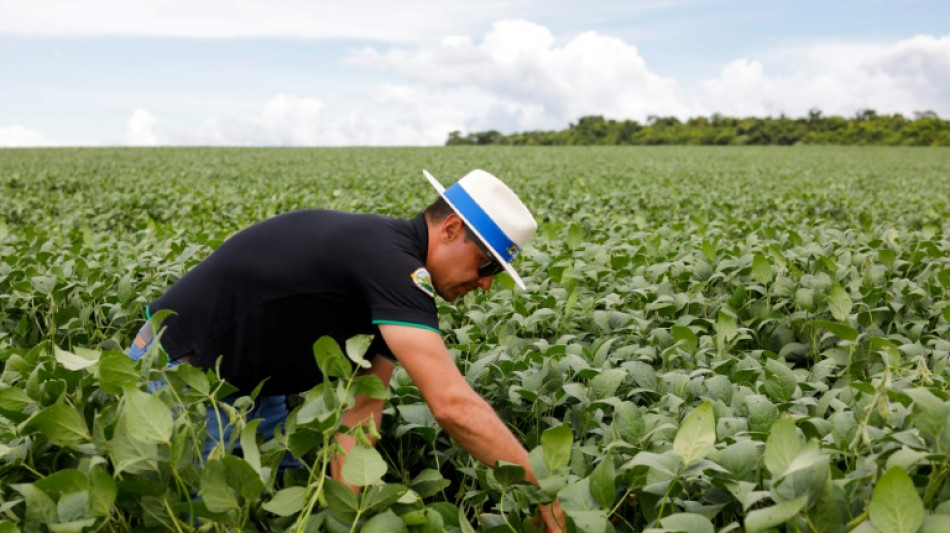
-
 What's behind England's Six Nations slump?
What's behind England's Six Nations slump?
-
Napoli rage at officials after loss at Atalanta

-
 Liverpool late show floors Nottingham Forest
Liverpool late show floors Nottingham Forest
-
Rimac Nevera R: Beyond imagination

-
 USA beat Canada to win men's Olympic ice hockey gold
USA beat Canada to win men's Olympic ice hockey gold
-
Samardzic seals comeback win for Atalanta over Napoli

-
 Eileen Gu switches slopes for catwalk after Olympic flourish
Eileen Gu switches slopes for catwalk after Olympic flourish
-
Luce: Ferrari's ingenious electric revolution

-
 Miller guides South Africa to 187-7 against India
Miller guides South Africa to 187-7 against India
-
Scotland boss 'proud' of comeback Six Nations win over Wales

-
 Iranian students rally for second day as fears of war with US mount
Iranian students rally for second day as fears of war with US mount
-
US Secret Service kills man trying to access Trump Florida estate

-
 Coventry 'let the Games do their magic': former IOC executives
Coventry 'let the Games do their magic': former IOC executives
-
Cayenne Turbo Electric 2026

-
 Sri Lanka have to qualify 'the hard way' after England drubbing
Sri Lanka have to qualify 'the hard way' after England drubbing
-
Doris says Six Nations rout of England is sparking Irish 'belief'

-
 Thousands of pilgrims visit remains of St Francis
Thousands of pilgrims visit remains of St Francis
-
Emotional Gu makes history with Olympic freeski halfpipe gold

-
 Impressive Del Toro takes statement victory in UAE
Impressive Del Toro takes statement victory in UAE
-
Gu wins triumphant gold of Milan-Cortina Olympics before ice hockey finale

-
 England rout Sri Lanka for 95 to win Super Eights opener
England rout Sri Lanka for 95 to win Super Eights opener
-
Underhill tells struggling England to maintain Six Nations 'trust' as Italy await

-
 Alfa Tonale 2026: With a new look
Alfa Tonale 2026: With a new look
-
BMW 7 Series and i7: facelift in 2026

-
 Eileen Gu makes history with Olympic freeski halfpipe gold
Eileen Gu makes history with Olympic freeski halfpipe gold
-
Eileen Gu makes history with Olympic halfpipe gold

-
 Morocco flood evacuees mark muted Ramadan away from home
Morocco flood evacuees mark muted Ramadan away from home
-
Lucid Gravity 2026: Test report

-
 Sri Lanka restrict England to 146-9 in T20 World Cup Super Eights
Sri Lanka restrict England to 146-9 in T20 World Cup Super Eights
-
West Indies wary of Zimbabwe's 'X-factor' quick Muzarabani

-
 Bentley: Visions for 2026
Bentley: Visions for 2026
-
Eileen Gu wins Olympic gold in women's freeski halfpipe

-
 First 'dispersed' Winter Olympics a success -- and snow helped
First 'dispersed' Winter Olympics a success -- and snow helped
-
Six stand-out moments from the 2026 Winter Olympics

-
 Andrew's arrest hands King Charles fresh royal crisis
Andrew's arrest hands King Charles fresh royal crisis
-
Afghans mourn villagers killed in Pakistani strikes

-
 Jeeno Thitikul brings home LPGA win in Thailand
Jeeno Thitikul brings home LPGA win in Thailand
-
Snowboard champion Karl '99 percent' sure parallel giant slalom will stay in Olympics

-
 Greenland does not need US hospital ship: Danish minister
Greenland does not need US hospital ship: Danish minister
-
Russian missile barrage hits energy, railways across Ukraine

-
 Ka Ying Rising makes Hong Kong racing history with 18th win
Ka Ying Rising makes Hong Kong racing history with 18th win
-
St Francis relics go on public show for first time in Italy

-
 Deflated Australia face tough questions after T20 World Cup flop
Deflated Australia face tough questions after T20 World Cup flop
-
Brazil's Lula urges Trump to treat all countries equally

-
 Knicks rally to down Rockets as Pistons, Spurs roll on
Knicks rally to down Rockets as Pistons, Spurs roll on
-
Brumbies end 26-year jinx with thrashing of Crusaders

-
 Pakistan launches deadly strikes in Afghanistan
Pakistan launches deadly strikes in Afghanistan
-
Son's LAFC defeats Messi and Miami in MLS season opener

-
 Korda to face Paul in all-American Delray Beach final
Korda to face Paul in all-American Delray Beach final
-
Vikings receiver Rondale Moore dies at 25


Natural pesticides gain ground in 'agri-tox' capital Brazil
Inspecting a thriving green field, Brazilian farmer Adriano Cruvinel is beaming: Using a fraction of the chemical products he used to, he is growing even more soy, thanks to natural pesticides.
Agricultural powerhouse Brazil may be the world leader in chemical pesticide use, but Cruvinel is part of a growing trend of farmers turning to natural products known as "biopesticides."
"Our soy is doing great," says the 36-year-old agricultural engineer, giving a tour of his 1,400-hectare (nearly 3,500-acre) farm in the central-western county of Montividiu, as combine harvesters work their way across a field.
"Thanks to the microorganisms we apply to the crop, it's a lot more resistant to pests and disease."
Brazil, the world's biggest exporter of soy, corn and cotton, is also the top consumer of chemical pesticides: nearly 720,000 metric tons in 2021, or one-fifth of global sales, according to the UN's Food and Agriculture Organization.
Seeking to improve his profits, in 2016 Cruvinel started transitioning toward so-called "regenerative" agriculture.
The technique seeks to restore the soil's biodiversity, replacing chemical fertilizers and pesticides with natural alternatives.
He still uses genetically modified soy, widespread in Brazil. But near those fields he built an ultra-modern laboratory and factory.
Inside, refrigerators conserve fungi and bacteria, some harvested from forestland on his farm.
He cultivates them en masse in vats, then uses them to treat his fields.
"Here, we imitate nature on a giant scale," says Cruvinel, who has replaced 76 percent of the chemical pesticides he formerly used with natural products.
The approach is good for health and the environment, but also business: His production costs have fallen by 61 percent, while his soy yields have risen by 13 percent, he says.
- 'Long way to go' -
Natural pesticides "could revolutionize Brazilian and global agriculture," says Marcos Rodrigues de Faria, a researcher at Embrapa, Brazil's public agricultural research agency.
But "there's a long way to go," he adds.
Brazil still relies heavily on chemical pesticides, known here as "agrotoxicos," or "agri-toxic" products.
Natural products grew from four percent of total pesticide sales in Brazil in 2020 to nine percent in 2022.
Their use has expanded four times faster in Brazil than internationally, says Amalia Borsari, of CropLife Brasil, an organization representing the agricultural chemicals industry.
"There has been exponential growth," she says.
Geographer Larissa Bombardi, an expert on pesticide use in Brazil, calls the trend "interesting."
But she says it is not yet changing Brazil's dominant model of massive, land-intensive mono-crop agriculture, which leaves little room for small-scale producers or more environmentally friendly practices.
"The surface area of land under cultivation in Brazil increased by 29 percent from 2010 to 2019, while pesticide use increased by 78 percent," she says.
- 'Gift to agribusiness' -
The agribusiness sector accounts for nearly a quarter of Latin America's biggest economy, making the pesticide debate politically charged.
After a long standoff with Congress, where agribusiness interests are a powerful force, President Luiz Inacio Lula da Silva signed a bill into law in December softening regulations on agricultural chemicals.
The veteran leftist used his line-item veto to block some controversial aspects of the bill. But the final text significantly lowered the bar for regulatory approval of new pesticides, drawing scathing criticism from environmentalists.
Chemicals that can cause cancer and mutations or harm the environment are no longer automatically banned -- only those found to represent an "unacceptable risk."
Bombardi calls the law a "tragedy" and "a gift to the agribusiness and agricultural chemicals industries."
The stakes go beyond Brazil.
The country's massive use of pesticides is one of the main objections voiced by opponents of a landmark trade deal between the European Union and South American bloc Mercosur, in which Brazil is the biggest player.
S.F.Warren--AMWN



